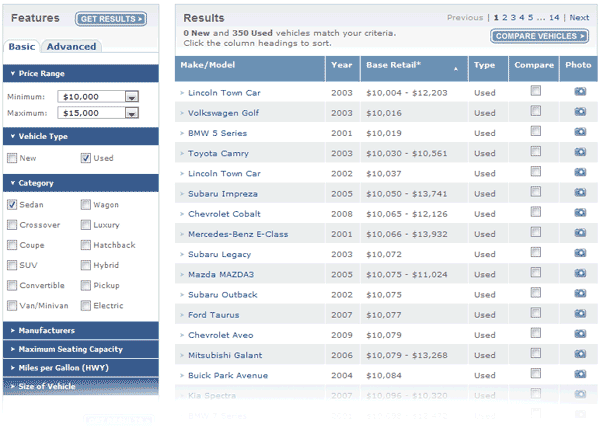Rise by Six: Your Daily Dose of Inspiration
Explore insights and stories that elevate your day.
Navigating the Car Maze: Your Key to Smart Buying
Unlock the secrets to smart car buying! Navigate the maze with our expert tips and drive away with the best deal today!
Top 10 Tips for Smart Car Buying: Avoid the Common Pitfalls
Buying a car can be an overwhelming experience, but knowing how to navigate the process can help you make smarter decisions. Tip #1: Do your research. Before heading to the dealership, familiarize yourself with various makes and models that fit your budget and needs. Utilize online resources to compare features, safety ratings, and customer reviews. Tip #2: Set a realistic budget. Determine how much you can afford, not just for the car itself but also for insurance, taxes, and maintenance costs. Aim to stick to this budget to avoid financial strain in the future.
Once you're equipped with the necessary knowledge, Tip #3: Test drive multiple vehicles. This is crucial to ensure you're comfortable with your choice. Pay attention to how the car handles and whether it suits your lifestyle. Tip #4: Don’t rush the process; give yourself ample time to shop around for the best deals. Remember, Tip #5: Negotiate the price. Many buyers fail to realize that the sticker price is often not set in stone. Be confident in your bargaining skills to secure a better price.

Understanding Car Financing: What You Need to Know Before You Buy
Car financing can be a daunting process, especially for first-time buyers. Before you dive into the world of auto loans, it's crucial to understand the key components that influence your financing options. Start by considering your credit score, which plays a significant role in determining the interest rates you will qualify for. Good credit can lead to lower rates, while poor credit may limit your options or increase costs. Additionally, knowing how much you can afford to pay monthly—typically not exceeding 15% of your take-home pay—can help you set a realistic budget.
Once you've assessed your financial situation, explore the different types of financing available. Options include bank loans, credit union loans, and dealership financing. Each comes with its own set of advantages and disadvantages. For instance, dealership financing often includes promotional offers but may carry higher interest rates compared to bank loans. To make an informed decision, it’s wise to gather quotes from multiple lenders and compare the annual percentage rates (APRs). Remember, doing your research and understanding your financing options can save you significant amounts of money in the long run.
Is Buying a Used Car Worth It? Pros and Cons Explained
Buying a used car can be a wise financial decision for many buyers, especially considering the rapid depreciation that new cars experience. Pros of purchasing a pre-owned vehicle include lower prices, less depreciation, and often lower insurance costs. For example, a new car loses around 20% of its value as soon as it’s driven off the lot, whereas a used car has already absorbed that loss. Additionally, buyers have a wider variety of models to choose from within their budget, which can make finding the right car easier. However, potential cons include the possibility of hidden mechanical issues and the absence of a warranty that often comes with new cars.
Furthermore, when considering whether buying a used car is worthwhile, it’s crucial to assess your personal needs and risk tolerance. If you are not comfortable with the potential for repairs or maintenance issues, a certified pre-owned vehicle might be a safer option, albeit at a higher price. Conversely, if you’re on a tight budget and willing to do diligent research, a well-maintained used car can serve as an excellent alternative to new models. In conclusion, weigh the pros and cons carefully to determine if purchasing a used car aligns with your financial goals and lifestyle.